Vaclav Havel Dead At 75
Vaclav Havel, who spent the 70s and 80s as a playwright-turned-dissident protesting in his own way against the Communist regime in Czechoslovakia and then became leader of the country in the 1990s, has died at the age of 75:
PRAGUE — Vaclav Havel, the dissident playwright who wove theater into politics to peacefully bring down communism in Czechoslovakia and become a hero of the epic struggle that ended the Cold War, has died. He was 75.
Mr. Havel died Sunday morning at his weekend house in the northern Czech Republic, his assistant Sabina Tancecova said said.
Mr. Havel was his country’s first democratically elected president after the nonviolent “Velvet Revolution” that ended four decades of repression by a regime he ridiculed as “Absurdistan.”
As president, he oversaw the country’s bumpy transition to democracy and a free-market economy, as well its peaceful 1993 breakup into the Czech Republic and Slovakia.
Even out of office, he remained a world figure. He was part of the “new Europe” — in the coinage of Defense Secretary Donald Rumsfeld — of ex-communist countries that stood up for the United States when the democracies of “old Europe” opposed the 2003 Iraq invasion.
A former chain-smoker, Mr. Havel had a history of chronic respiratory problems dating to his years in communist jails. He was hospitalized in Prague on Jan. 12, 2009, with an unspecified inflammation, and had developed breathing difficulties after undergoing minor throat surgery.
Mr. Havel left office in 2003, 10 years after Czechoslovakia broke up and a few months before both nations joined the European Union. He was credited with laying the groundwork that brought his Czech Republic into the 27-nation bloc, and was president when it joined NATO in 1999.
Shy and bookish, with wispy mustache and unkempt hair, Mr. Havel came to symbolize the power of the people to peacefully overcome totalitarian rule.
“Truth and love must prevail over lies and hatred,” He famously said. It became his revolutionary motto which he said he strove to live by.
Mr. Havel was nominated several times for the Nobel Peace Prize, and collected dozens of accolades worldwide for his efforts as a global ambassador of conscience, defended the downtrodden from Darfur to Myanmar.
Among his many honors were Sweden’s prestigious Olof Palme Prize and the Presidential Medal of Freedom, the highest United States civilian award, bestowed on him by President George W. Bush for being “one of liberty’s great heroes.”
An avowed peacenik whose heroes included rockers like Frank Zappa, he never quite shed his flower-child past and often signed his name with a small heart as a flourish.
Mr. Havel first made a name for himself after the 1968 Soviet-led invasion that crushed the Prague Spring reforms of Alexander Dubcek and other liberally minded communists in what was then Czechoslovakia.
Mr. Havel’s plays were banned as hard-liners installed by Moscow snuffed out every whiff of rebellion. But he continued to write, producing a series of underground essays that stand with the work of Soviet dissident Andrei Sakharov as the most incisive and eloquent analyses of what communism did to society and the individual.
One of his best-known essays, “The Power and the Powerless” written in 1978, borrowed slyly from the immortal opening line of the mid-19th century Communist Manifesto, writing: “A specter is haunting eastern Europe: the specter of what in the West is called ‘dissent.”‘
In the essay, he dissected what he called the “dictatorship of ritual” — the ossified Soviet bloc system under Leonid Brezhnev — and imagined what happens when an ordinary greengrocer stops displaying communist slogans and begins “living in truth,” rediscovering “his suppressed identity and dignity.”
He knew that suppression firsthand.
Born Oct. 5, 1936, in Prague, the child of a wealthy family which lost extensive property to communist nationalization in 1948, Havel was denied a formal education, eventually earning a degree at night school and starting out in theater as a stagehand.
His political activism began in earnest in January 1977, when he co-authored the human rights manifesto Charter 77, and the cause drew widening attention in the West.
Mr. Havel was detained countless times and spent four years in communist jails. His letters from prison to his wife became one of his best-known works. “Letters to Olga” blended philosophy with a stream of stern advice to the spouse he saw as his mentor and best friend, and who tolerated his reputed philandering and other foibles.
The events of August 1988 — the 20th anniversary of the Warsaw Pact invasion — first suggested that Mr. Havel and his friends might one day replace the faceless apparatchiks who jailed them.
Thousands of mostly young people marched through central Prague, yelling his name and that of the playwright’s hero, Tomas Garrigue Masaryk, the philosopher who was Czechoslovakia’s first president after it was founded in 1918.
Mr. Havel’s arrest in January 1989 at another street protest and his subsequent trial generated anger at home and abroad. Pressure for change was so strong that the communists released him again in May.
That fall, communism began to collapse across Eastern Europe, and in November the Berlin Wall fell. Eight days later, communist police brutally broke up a demonstration by thousands of Prague students.
By December 1989, Havel was named President of Czechoslovakia, a position to which he was elected in 1990 in the first free elections in that country since the Germans arrived in 1938. He served in that position until 1992, when the Czech Republic and Slovaka mutually decided to dissolve a nation that had been haphazardly put together at the end of World War One. Havel served as President of the Czech Republic from 1993 until 2003.
Reason’s Nick Gillespie links this morning to a 2003 piece in the magazine written by Matt Welch at the time Havel was leaving office:
Vaclav Havel, the 66-year-old former Czech president who was term-limited out of office on February 2, built his reputation in the 1970s by being to eyewitness fact what George Orwell was to dystopian fiction. In other words, he used common sense to deconstruct rhetorical falsehoods, pulling apart the suffocating mesh of collectivist lies one carefully observed thread at a time.
Like Orwell, Havel was a fiction writer whose engagement with the world led him to master the nonfiction political essay. Both men, in self-described sentiment, were of “the left,” yet both men infuriated the left with their stinging criticism and ornery independence. Both were haunted by the Death of God, delighted by the idiosyncratic habits of their countrymen, and physically diminished as a direct result of their confrontation with totalitarians (not to mention their love of tobacco). As essentially neurotic men with weak mustaches, both have given generations of normal citizens hope that, with discipline and effort, they too can shake propaganda from everyday language and stand up to the foulest dictatorships.
Unlike Orwell, Havel lived long enough to enjoy a robust third act, and his last six months in office demonstrated the same kind of restless, iconoclastic activism that has made him an enemy of ideologues and ally of freedom lovers for nearly five decades.
(…)
Three successive United States presidents have fallen under Havel’s spell, and he in turn has used his access to cajole them into taking military action against Slobodan Milosevic, expanding NATO, and minding the lessons of Munich. Clinton and George W. Bush in particular seem tongue-tied and awe-struck in the presence of someone who actually fought communism and lived to tell about it; Havel returns the favor by flattering America’s role in taking down the Evil Empire. His open, though qualified, flattery of the U.S. is one reason Noam Chomsky considers him “morally repugnant” and on an “intellectual level that is vastly below that of Third World peasants and Stalinist hacks.”
Chomsky’s insults aside, Havel has enabled Czechs to punch above their weight in international affairs for 13 years; this will likely end as the extraordinary geopolitical circumstances that created him fade and are replaced by more provincial Czech political concerns. Havel himself sees his career as a massive historical accident, even a joke. But as he walks off the global stage, Czechs and the rest of the world can be thankful that someone like him was essentially in the wrong place at the right time. He remains a figure from whom not just insight but inspiration can be drawn.
“The most important thing,” Havel said in his final New Year’s address as president, “is that new generations are maturing, generations of people who grew up free and are not deformed by life under Communist rule. These are the first Czechs of our times who inherently consider freedom normal and natural. It would be great if the breaking through of these people into various parts of public life leads to our society more factually, thoroughly and impartially examining its past, without whose reflection we cannot be ourselves. I also hope it will lead to our successfully parting with many ill consequences of the work of destruction the Communist regime wreaked upon our souls.”
Sitting here twenty years after the collapse not just of the Soviet sphere of influence in Eastern Europe, but of the Soviet Union itself, it’s easy to forget that men like Havel existed, why they had to exist, and the risks they took to keep the flame of freedom burning in the darkness.
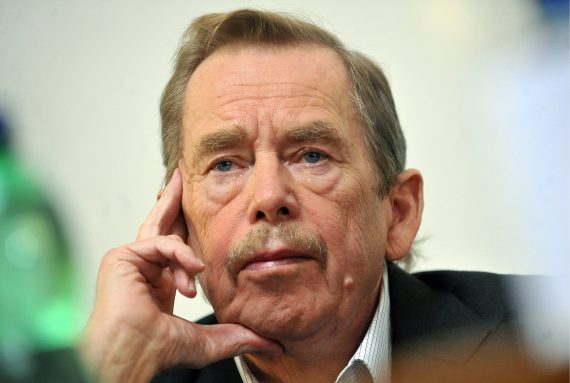

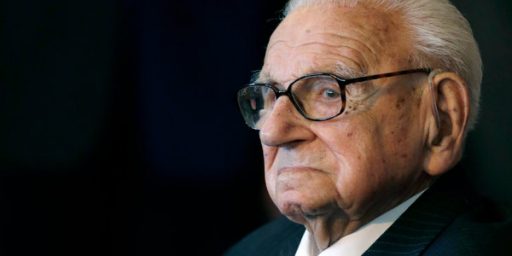
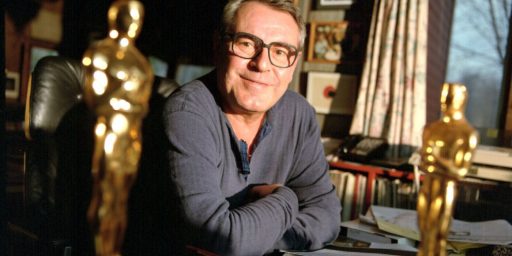
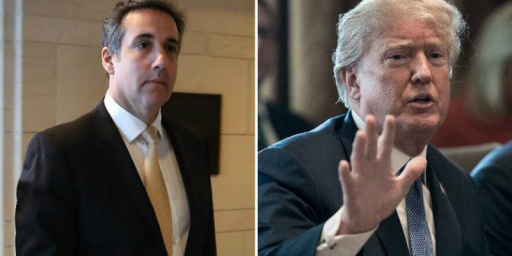
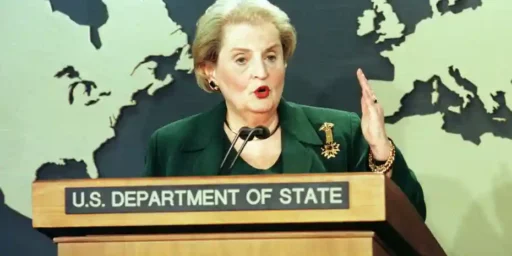

:'( i’m from czech repulic. everybody here is so sad 🙁 he’s the best people of CR….R.I.P. in every czech chanels are moveies about mr. Havel 🙁 🙁 so sad. and thakn you very much .. because you are writeing about him 🙁
I have the awkward mixture of surprise and delight that he was still alive, and the sadness that he no longer is.
For some reason, I thought he died a few years ago — I distinctly remember being very sad about it. I must have been assuming that he wouldn’t survive long after one of his surgeries (he was a chain smoker with lung cancer, and his wife had recently passed).
I hope those last few years were good ones for him. He was a great author, a great leader, and a pretty ok man. He did have terrible handwriting though.
Also, I like him for all the reasons Noam Chomsky doesn’t. He was an Americanophile, and as an American I think there’s something sweet about that. He saw America as a beacon of freedom, and as an ideal that even if America didn’t always reach, was worth aspiring to.
And he helped push us to act against Slobodan Milosevic. Cleaning up a genocidal dictator of a petty country with no significant resources and a generally inconvenient location might not have been in the immediate interests of the US, but it was the right thing to do. As a beacon of freedom, we should put a stop to the worst abuses when we can.
Havel was one of the truly great human beings of the late 20th century. One of my personal heroes, too. May he rest in peace.